- Home
- Stephanie Laurens
Loving Rose: The Redemption of Malcolm Sinclair (Casebook of Barnaby Adair) Page 5
Loving Rose: The Redemption of Malcolm Sinclair (Casebook of Barnaby Adair) Read online
Page 5
And if he could do anything to help them, he would.
While he waited for Fate to summon him.
After doing her nightly round of the house, and noting with approval that her employer had taken himself upstairs, Rose climbed to the upper floor; hers and the children’s rooms were nestled under the eaves.
Going first to Pippin’s small room, then to Homer’s, she tucked them in firmly. Both were already asleep, their innocent faces beatific; she smiled down on them, then left them to their slumbers.
Earlier, when she’d come up to shoo them into their beds, both had still been chattering about Mr. Glendower—Thomas as he now was to them. She didn’t think it wise to relinquish the formal mode of address herself, and he, sensibly, hadn’t pressed. But with the children he’d already stepped far beyond the “distant employer” state; both had many eager and curious questions, none of which, she judged, were of the sort to cause him any difficulties, and she had to admit she was curious herself.
If someone had asked her to imagine what her absent employer would be like, she would never have dreamed of such a man—of such a very complex, rather fascinating man.
Oddly, despite being on obvious display, his infirmities had not, and did not, materially influence the way she or the children saw him—and that, she suspected, was because he, himself, did not see himself as damaged and unable, as somehow lesser because of his injuries. It was his self-confidence and assurance that others responded to; that had been demonstrated beyond doubt throughout the evening.
Still, as she slid beneath the covers and settled in her bed, she forced herself to take a mental step back and evaluate, coolly and logically, whether Thomas Glendower and his advent into their lives posed any threat to their concealment.
She’d already dismissed the possibility that he might be any threat to either her or the children personally; her instincts really were too well honed by now for her to doubt their verdict, and on the subject of Thomas Glendower, her instincts were entirely certain: He posed no direct threat to her or the children.
That aside . . . she weighed every likely possibility, thought through every scenario she could imagine, and ended concluding that, if anything, his presence at the manor, as the owner of the property, someone who, despite not having been there for years, was known by name and reputation, made their situation better, not worse.
He was, effectively, an extra shield, strengthening and making more impenetrable the façade she’d constructed to hide behind. Him being there, and by inference accepting her and the children for who they purported to be, made their disguise even less transparent.
She considered that conclusion for several minutes and finally accepted it as sound.
Satisfied, she turned on her side and snuggled down, pulling the covers over her shoulder.
Having Thomas Glendower return to live at the manor might be a very good thing, indeed.
And that was not at all how she would have expected to feel about having a largely unknown man sleeping under the same roof as her and the children.
Lips curving in a wry, faintly intrigued smile, Rose shut her eyes and let sleep take her.
Chapter
2
The following morning, before Rose could set a tray for him, her employer arrived in the kitchen and took his seat at the end of the table.
“Good morning.” He nodded to Homer and Pippin, both of whom grinned back, then he raised his gaze to Rose, where she stood rooted before the stove. “What’s for breakfast?”
Rapidly consulting her memory, Rose realized he had, indeed, mentioned taking his meals—all meals—with them. She reached for the coffeepot. “Would you like coffee to start with?”
He nodded and she poured him a cup, then carried it to him.
He reached out and, with both hands, took it from her. His fingers brushed over hers and, once again, she felt a sensual shiver.
Which she ruthlessly quashed; developing any degree of susceptibility to her employer was very definitely not part of her plans.
Without any sign of awareness of his impact, he buried his nose in the cup, and, relieved, she retreated to the stove. “Bacon and eggs in just a few minutes.” She glanced over her shoulder at him. “Are scrambled eggs all right, or would you rather fried?”
“Scrambled will suit me very well.” He looked at Homer and Pippin. “So what are you two doing today?”
They told him, filling his ears with all the little details of their days while she laid the bacon to drain, then tipped her prepared eggs into the skillet.
Three minutes later, she set a plate piled with a mound of fluffy golden eggs and trimmed with three slices of the local bacon before him.
“Oh, that does look good.” Picking up his knife and fork, he addressed himself to the food.
Rose set Homer’s and Pippin’s smaller serves before them and they, too, fell silent.
Satisfied, she slipped into her chair and joined the gustatory indulgence. But she remained alert, feeling that this was all going too easily and expecting some catch, some less-than-helpful aspect to make itself known at any minute, yet none did.
And, she had to admit, having him take his meals with them would make catering for his presence significantly easier.
As if to demonstrate yet another advantage, on finishing his meal he pushed away his plate, reached for the coffeepot she’d set on the table, and poured himself a second cup, sipped, then his hazel gaze focused on her. “I have to ride into Breage, and then on to Helston this morning. Is there anything you’d like me to fetch—more eggs, butter, ham?”
She blinked. “I get groceries, eggs, and meat delivered every week—the last delivery was earlier this week—but . . .” She hadn’t allowed for his arrival, and she’d just used up a good half of the eggs. “In the circumstances, perhaps I could give you a list, just to get us through until the next delivery comes. I can increase my orders then.”
He held her gaze for a moment, long enough to have her thinking over her words and wondering what she’d said. But then he nodded and pushed away from the table. “By all means give me your list of immediate extras, but you can also give me a list of those merchants with whom you have standing orders. I’ll call on them, look over the orders, and increase accordingly, then the deliveries from next week will be sufficient.” He paused, his gaze growing momentarily distant, then he refocused on her face. “I believe my original arrangement was that all the merchants send their bills to Drayton. Is that system still in place?”
She nodded, casting about for some way of asking the question the discussion had raised.
As before, his lips quirked—and this time she knew it was in understanding; he had read her mind—and he said, “I don’t know how long I’ll be remaining here. It could be for weeks, or even months.”
She blinked. “You have no definite plans?”
Still holding her gaze, he shook his head. “No.” After a moment, he added, “You might say I’m awaiting a summons of sorts, but I can’t say when it will arrive.”
So he was there potentially indefinitely. She inclined her head, accepting, for what else could she do?
He got to his feet, smiled as he nodded to the children, then he glanced at her. “I’ll be in the library for a few hours. I’ll come and find you before I leave.”
She nodded again and watched him pass under the archway into the corridor to the front of the house. He still limped, still used his cane, but, she noticed, he wasn’t leaning as heavily on it as he had been the previous day.
While the children finished eating, then helped her clear and clean, she replayed her conversation with Glendower.
There was, she acknowledged, a chance that he would realize their truth, or at least see through some part of their disguise. He was certainly observant and, she judged, intelligent enough. Piercingly intelligent; she could see that in his eyes, and it was more than enough to make her wary.
She and the children could leave before he had a chanc
e to learn too much, but, against that, she and the children were settled and comfortable there, and, despite all, her instincts continued to tell her that she had no reason to fear him—no reason to suppose that, even if he knew all, he would wish them any harm.
And he had voluntarily lived in a monastery for the last five years; presumably he had a healthy notion of right and wrong, of good and evil.
With the dishes dried and stored, she turned to the children and smiled at their bright faces. For them, still, each day was an adventure. “Come along, then.” She reached out to stroke their shiny heads. “Let’s get you started with your lessons.”
Until she had some reason to decide otherwise, they would go on as they had been, but, regardless of her instincts, she would remain on guard.
Two hours later, armed with his requested lists, Thomas made his halting way to the stables. The neat brick structure at the end of the drive appeared in good order; he suspected that ensuring that order was one of Homer’s chores.
Pulling open the wooden door, Thomas limped inside and paused in the central aisle to take stock. His gray was placidly, but expectantly, eyeing him from the stall closest to the door. The next stall housed a smaller horse, little more than a pony, no doubt used for drawing the light trap that sat at the rear of the stable. The third stall was currently empty, its winter occupant no doubt the cow he’d seen cropping grass in the small field beyond the manor’s back garden. The side of the stable opposite the stalls was piled high with bales of straw and hay, and several bags of grain.
Noting the tack area just inside the door, Thomas crossed to where his saddle sat atop a wooden horse. Collecting the saddle in one arm, he lifted bridle and reins from a peg, then went to saddle the gray.
He was just settling the saddle across the gray’s broad back when a clatter of rushing footsteps approached, then Homer came racing through the door. He skidded to a halt facing Thomas and the gray.
The gray snorted. Thomas grinned.
Eyes wide, Homer blurted, “Ma sent me to help you.” Straightening, he blinked. “But you’ve managed it all yourself.”
“Indeed.” Balancing against the horse’s side, Thomas expertly cinched the girth. “As you can see, I’m perfectly capable of performing such tasks.” He glanced at Homer; the boy appeared faintly crestfallen. “But please thank your mother for the kind thought, and thank you for rushing out here to help.”
Homer brightened. “Oh, I was happy to.” Approaching the gray’s head, he patted the long nose. “It meant I could come outside for a spell.”
Thomas inwardly frowned. Settling the reins, he asked, “How old are you?” He’d been careful not to ask too many questions, even the obvious ones, last night, not in front of the still suspicious and watchful Mrs. Sheridan.
“Nine,” Homer readily volunteered. “Pippin’s only six.”
Thomas hesitated, then asked, “Why is it you’re not attending school? If I remember correctly, there’s a village school not far away, just this side of Breage.”
Unperturbed, Homer nodded. “Ma schools us. She gets books when we go into Helston or Exeter.” He shrugged. “It’s been all right, I suppose, but . . .” He grimaced. “I’m sure I could learn more—things like geography, and more Latin, and history, too. Even arithmetic. I’m as good as Ma at that already. And I would love to learn astronomy—about the planets and the celestial bodies.”
Watching the boy’s face, absorbing the eagerness lighting his eyes and the fervor in his tone, Thomas noted that Homer saw no contradiction in being a housekeeper’s son and having access to tutelage in such subjects. “Have you looked through the books in the library?” He tipped his head toward the house.
“No.” Homer sighed. “Ma doesn’t let us go in there.”
Gathering the reins, Thomas led the gray out of the stables. Homer kept pace on the horse’s other side. Halting the gray, Thomas held his cane out to Homer. “Hold this while I mount.”
Homer took the cane and watched with transparent curiosity as, standing on Silver’s off-side, Thomas angled his body so he could slip the toe of his right riding boot into the stirrup; Silver had been trained to allow him to mount on the off-side, a necessity given his injuries. Grasping the saddle, Thomas pulled himself up, swinging his stiff left leg over and sitting. The stirrup on the left hung lower than on the right, but unless one looked closely, Thomas appeared to ride as easily as any other man.
He reached for the cane. “Thank you.” Slipping the cane into its holder, he glanced at Homer. “If you like, when I get back, I could select some interesting books for you to read.”
“From your library?” When Thomas nodded, Homer beamed. “That would be wonderful!”
Thomas found himself grinning back. He could remember having just such a ravenous thirst for knowledge; in his case, he’d had it fulfilled, more or less as part of his birthright. In Homer’s case, Thomas could assist in expanding the boy’s knowledge. He was more than qualified to act as the boy’s tutor. But he should, he suspected, talk that over with Mrs. Sheridan before he raised Homer’s hopes.
Yet he’d already decided that while he was at the manor he should do what he could to help the Sheridans, and letting Homer read some books from the library was surely an unexceptionable way to do that.
The gray shifted, eager to be off. Thomas reined him in long enough to nod to Homer. “Done. I’ll look out a selection of books when I get back.”
Then he let the reins ease, and the gray surged. As Thomas steered the horse down the drive, he heard a whoop of boyish delight fading behind him.
The gray was ready for an outing and settled into a well-paced canter along the road to Breage. Although Helston was Thomas’s goal, and he could have reached the town by a more direct route, he’d elected to ride through Breage—just to see.
As it transpired, the baker Mrs. Sheridan favored for her flour and similar supplies was located in the small village. Thomas called there and spent a few minutes improving his rusty charm while adjusting the standing order for the manor.
Leaving the shop, he paused in the street, looking up and down at the few shops and single alehouse. The baker’s wife who he’d spoken with had evinced nothing more than a natural curiosity over meeting a long-absent landowner, one who was scarred and walked with a pronounced limp. As far as Thomas could recall, he had never had any real truck with anyone in the village; there should be no one there who would remember him from before.
From 1816, when, as a much younger man, he’d been party to a scheme to frighten locals who had owned tin mining leases to sell them to him. He’d done nothing more than spread false rumors, and that had been the one and only less-than-honest business venture Thomas Glendower had participated in. All the rest had been done under his birth name, the one associated with his now-dead other self.
Satisfied that there was no potential problem—either for him or the Sheridans—lurking in Breage, Thomas mounted up and took the high road for Helston.
Four uneventful and relaxing miles later, Silver clattered across the bridge over the river Cober, and Thomas turned the horse up the steep rise of Coinagehall Street. The only place in Helston in which, in 1816, he’d spent any real time was the Blue Anchor, a tavern frequented by miners. Walking the gray past the thatched building, he continued up the rise and turned into the stable yard of the Angel Hotel, a more superior establishment high on the rise and much closer to his goal of the post office.
Leaving Silver in the care of the Angel’s head ostler, Thomas crossed the road and continued to the post office. He posted letters to Drayton and Marwell in London, and also dispatched a missive to Roland. After a congenial chat with the clerk behind the counter, he went into the tobacconist’s next door, where he arranged for copies of the principal London financial news sheets, as well as The Times, to be delivered every day as soon as they arrived from the capital. Given this was Cornwall, that meant he would receive the early morning edition in the late afternoon. The delay wasn�
��t ideal, but it had been the same at the priory, and he’d learned to work with the limitation.
Over the last years, he’d refashioned Thomas Glendower’s investments into the equivalent of a philanthropic master-fund; despite having set out to seek his fated task, his ultimate penance, he did not see that as an excuse to cease his necessary oversight of that fund. While he waited for Fate to find him, he still had work to do; he did not intend to wait idly.
Aside from all else, idleness in one such as he invariably led to trouble.
His mind never ceased thinking, weighing, speculating: What if he did this, or that? What would be the outcome? Where would lie the gain? And would it be as much as he predicted? It was a persistent activity he’d long ago learned to live with; indeed, for him, such constant mental activity was the norm.
And, as one farsighted old lady had warned him long ago, therein lay the danger. His mind was all too adept at forming schemes for financial gain but, sadly, without due consideration of the law, much less morality. If such schemes remained inside his head, no harm was caused, but, once formed, the temptation to let the schemes out into the world, to give them a chance to play out to see if they worked . . . that was the lure, the constant, insistent temptation he had learned through hard experience he had to hold against.
Keeping his mind busy with legitimate, even desirable, moneymaking ventures was, for him, more necessity than choice.
Halting on the narrow pavement outside the tobacconist’s shop, copies of yesterday’s news sheets tucked under his arm, Thomas pulled out his fob-watch. It was well after twelve o’clock. The impulse to ride straight back to the manor was surprisingly strong, but by the time he reached there, Mrs. Sheridan and the children would almost certainly have finished their luncheon, and his arrival, hungry and wanting to be fed, would put his housekeeper out.
Tucking his watch back in his waistcoat pocket, Thomas straightened, tightened his grip on his cane, and made his way across the street to the Angel Hotel, and its purportedly excellent dining room.

 Lady Osbaldestone’s Plum Puddings: Lady Osbaldestone’s Christmas Chronicles Volume 3
Lady Osbaldestone’s Plum Puddings: Lady Osbaldestone’s Christmas Chronicles Volume 3 The Beguilement of Lady Eustacia Cavanagh: The Cavanaughs Volume 3
The Beguilement of Lady Eustacia Cavanagh: The Cavanaughs Volume 3 Loving Rose: The Redemption of Malcolm Sinclair (Casebook of Barnaby Adair)
Loving Rose: The Redemption of Malcolm Sinclair (Casebook of Barnaby Adair) By Winter's Light
By Winter's Light Devil's Bride
Devil's Bride The Tempting of Thomas Carrick
The Tempting of Thomas Carrick![Cynster [22.00] A Match for Marcus Cynster Read online](http://i1.bookreadfree.com/i/03/16/cynster_[22_00]_a_match_for_marcus_cynster_preview.jpg) Cynster [22.00] A Match for Marcus Cynster
Cynster [22.00] A Match for Marcus Cynster All About Love c-6
All About Love c-6 Cobra 01 The Untamed Bride
Cobra 01 The Untamed Bride A Lady of Expectations and Other Stories
A Lady of Expectations and Other Stories By Winter's Light_A Cynster Novel
By Winter's Light_A Cynster Novel And Then She Fell
And Then She Fell The Greatest Challenge of Them All
The Greatest Challenge of Them All The Edge of Desire
The Edge of Desire The Trouble With Virtue: A Comfortable WifeA Lady by Day
The Trouble With Virtue: A Comfortable WifeA Lady by Day Fair Juno
Fair Juno THE LEGEND OF NIMWAY HALL: 1750 - JACQUELINE
THE LEGEND OF NIMWAY HALL: 1750 - JACQUELINE Four In Hand
Four In Hand The Reckless Bride
The Reckless Bride Stephanie Laurens Rogues' Reform Bundle
Stephanie Laurens Rogues' Reform Bundle The Untamed Bride Plus Black Cobra 02-03 and Special Excerpt
The Untamed Bride Plus Black Cobra 02-03 and Special Excerpt The Lady's Command (Adventurers Quartet #1)
The Lady's Command (Adventurers Quartet #1) The Seduction of Sebastian Trantor
The Seduction of Sebastian Trantor The Daredevil Snared (The Adventurers Quartet Book 3)
The Daredevil Snared (The Adventurers Quartet Book 3)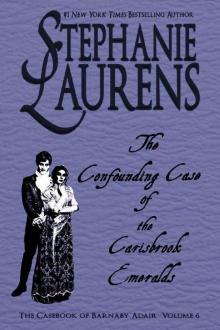 The Confounding Case Of The Carisbrook Emeralds (The Casebook of Barnaby Adair 6)
The Confounding Case Of The Carisbrook Emeralds (The Casebook of Barnaby Adair 6) Lord of the Privateers (The Adventurers Quartet)
Lord of the Privateers (The Adventurers Quartet)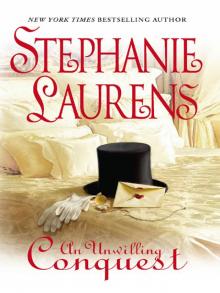 An Unwilling Conquest
An Unwilling Conquest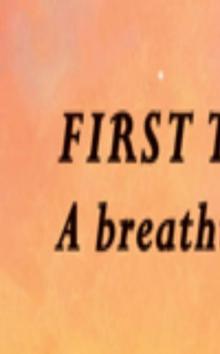 Brazen Bride
Brazen Bride On a Wild Night
On a Wild Night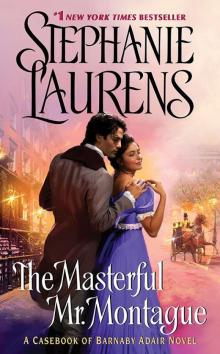 The Masterful Mr. Montague: A Casebook of Barnaby Adair Novel
The Masterful Mr. Montague: A Casebook of Barnaby Adair Novel Lord of the Privateers
Lord of the Privateers Royal Bridesmaids
Royal Bridesmaids Beyond Seduction
Beyond Seduction It Happened One Night
It Happened One Night The Ideal Bride
The Ideal Bride The Promise in a Kiss
The Promise in a Kiss The Taming of Ryder Cavanaugh
The Taming of Ryder Cavanaugh The Ideal Bride c-12
The Ideal Bride c-12 All About Love
All About Love A Return Engagement
A Return Engagement The Untamed Bride Plus Two Full Novels and Bonus Material
The Untamed Bride Plus Two Full Novels and Bonus Material Viscount Breckenridge to the Rescue
Viscount Breckenridge to the Rescue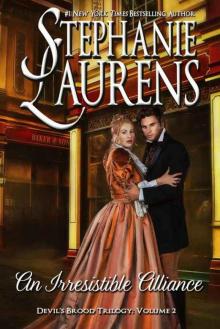 An Irresistible Alliance (Cynsters Next Generation Novels Book 5)
An Irresistible Alliance (Cynsters Next Generation Novels Book 5) The Daredevil Snared
The Daredevil Snared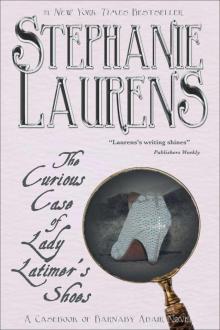 The Curious Case of Lady Latimer's Shoes: A Casebook of Barnaby Adair Novel
The Curious Case of Lady Latimer's Shoes: A Casebook of Barnaby Adair Novel A Lady of Expectations and Other Stories: A Lady of ExpectationsThe Secrets of a CourtesanHow to Woo a Spinster
A Lady of Expectations and Other Stories: A Lady of ExpectationsThe Secrets of a CourtesanHow to Woo a Spinster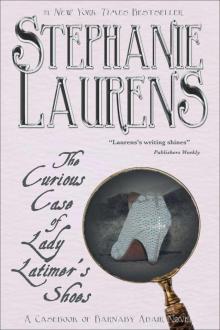 The Curious Case of Lady Latimer's Shoes: A Casebook of Barnaby Adair Novel (The Casebook of Barnaby Adair)
The Curious Case of Lady Latimer's Shoes: A Casebook of Barnaby Adair Novel (The Casebook of Barnaby Adair) The Truth About Love
The Truth About Love A Rogue's Proposal
A Rogue's Proposal The Elusive Bride
The Elusive Bride The Perfect Lover
The Perfect Lover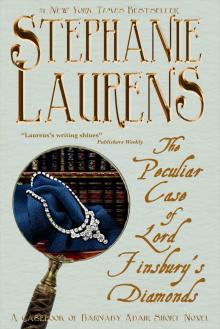 The Peculiar Case of Lord Finsbury's Diamonds: A Casebook of Barnaby Adair Short Novel
The Peculiar Case of Lord Finsbury's Diamonds: A Casebook of Barnaby Adair Short Novel The Lady Risks All
The Lady Risks All The Murder at Mandeville Hall: The Casebook of Barnaby Adair: Volume 7
The Murder at Mandeville Hall: The Casebook of Barnaby Adair: Volume 7 All About Passion
All About Passion A Match for Marcus Cynster
A Match for Marcus Cynster By Winter's Light: A Cynster Novel (Cynster Special Book 2)
By Winter's Light: A Cynster Novel (Cynster Special Book 2) The Lady By His Side
The Lady By His Side The Pursuits of Lord Kit Cavanaugh
The Pursuits of Lord Kit Cavanaugh Tangled Reins
Tangled Reins To Distraction
To Distraction A Rake's Vow
A Rake's Vow A Comfortable Wife
A Comfortable Wife A Lady of His Own bc-3
A Lady of His Own bc-3 The Capture of the Earl of Glencrae
The Capture of the Earl of Glencrae Scandals Bride c-3
Scandals Bride c-3 Untamed Bride
Untamed Bride The Brazen Bride
The Brazen Bride The Lady By His Side (Cynsters Next Generation Novels Book 4)
The Lady By His Side (Cynsters Next Generation Novels Book 4) Tangled Reins and Other Stories
Tangled Reins and Other Stories Impetuous Innocent
Impetuous Innocent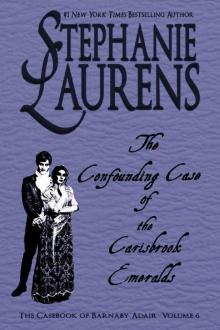 The Confounding Case Of The Carisbrook Emeralds
The Confounding Case Of The Carisbrook Emeralds Stephanie Laurens - B 6 Beyond Seduction
Stephanie Laurens - B 6 Beyond Seduction What Price Love?
What Price Love? A Fine Passion
A Fine Passion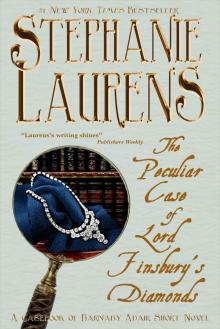 The Peculiar Case of Lord Finsbury's Diamonds: A Casebook of Barnaby Adair Short Novel (The Casebook of Barnaby Adair)
The Peculiar Case of Lord Finsbury's Diamonds: A Casebook of Barnaby Adair Short Novel (The Casebook of Barnaby Adair) Where the Heart Leads
Where the Heart Leads The Designs of Lord Randolph Cavanaugh
The Designs of Lord Randolph Cavanaugh A Secret Love c-5
A Secret Love c-5 On a Wicked Dawn c-10
On a Wicked Dawn c-10 A Gentleman's Honor
A Gentleman's Honor THE LEGEND OF NIMWAY HALL_1750_JACQUELINE
THE LEGEND OF NIMWAY HALL_1750_JACQUELINE A Lady of Expectations
A Lady of Expectations Royal Weddings: An Original Anthology
Royal Weddings: An Original Anthology The Ideal Bride (Cynster Novels)
The Ideal Bride (Cynster Novels) Mastered by Love
Mastered by Love A Buccaneer at Heart
A Buccaneer at Heart Captain Jack’s Woman / A Gentleman's Honor
Captain Jack’s Woman / A Gentleman's Honor Devil's Bride with Bonus Material
Devil's Bride with Bonus Material A Lady of His Own
A Lady of His Own A Secret Love
A Secret Love Melting Ice
Melting Ice Scandal's Bride
Scandal's Bride Lady Osbaldestone’s Christmas Goose
Lady Osbaldestone’s Christmas Goose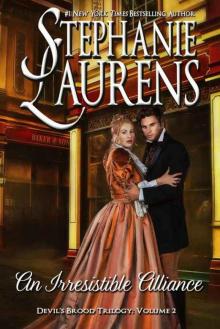 An Irresistible Alliance
An Irresistible Alliance It Happened One Season
It Happened One Season In Pursuit Of Eliza Cynster
In Pursuit Of Eliza Cynster Captain Jack's Woman
Captain Jack's Woman The promise in a kiss c-8
The promise in a kiss c-8 The Masterful Mr. Montague
The Masterful Mr. Montague The Lady Chosen
The Lady Chosen A Gentleman's Honor bc-2
A Gentleman's Honor bc-2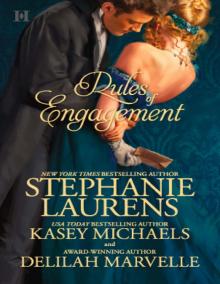 Rules of Engagement: The Reasons for MarriageThe Wedding PartyUnlaced (Lester Family)
Rules of Engagement: The Reasons for MarriageThe Wedding PartyUnlaced (Lester Family) Secrets of a Perfect Night
Secrets of a Perfect Night The Taste of Innocence
The Taste of Innocence On A Wicked Dawn
On A Wicked Dawn The Untamed Bride
The Untamed Bride A Rogues Proposal c-4
A Rogues Proposal c-4 Rakes Vow c-2
Rakes Vow c-2 Devils Bride c-1
Devils Bride c-1 Hero, Come Back
Hero, Come Back On a Wild Night c-8
On a Wild Night c-8 All About Passion c-7
All About Passion c-7